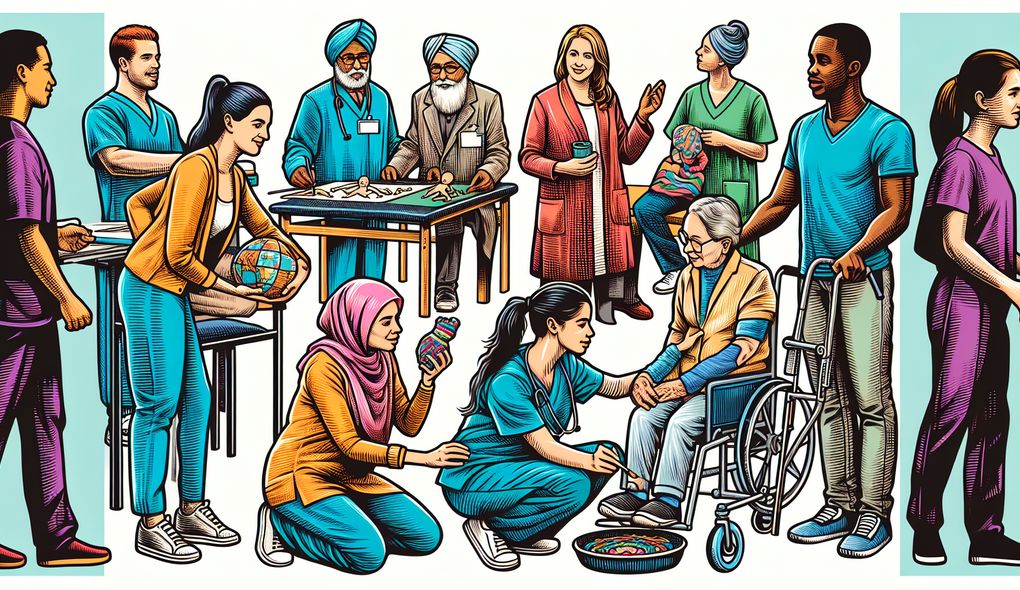How do you approach patient assessments and developing treatment plans? Can you provide an example?
JUNIOR LEVEL

Sample answer to the question:
When approaching patient assessments and developing treatment plans, I start by thoroughly evaluating the patient's needs and goals. I gather information through interviews, observations, and assessments to understand their condition and limitations. Based on this, I develop personalized treatment plans that address their physical, cognitive, psychosocial, and sensory needs. For example, when working with a stroke patient, I assessed their strength, range of motion, and cognitive abilities. I then designed a treatment plan that involved exercises to improve their mobility, cognitive exercises to enhance problem-solving skills, and activities to promote emotional well-being. I monitored their progress regularly and made adjustments to the treatment plan as needed.
Here is a more solid answer:
When approaching patient assessments, I prioritize a comprehensive evaluation of their physical, cognitive, psychosocial, and sensory needs. I use a combination of interviews, observations, and standardized assessments to gather information and gain insight into the patient's abilities and limitations. For example, when working with a child with autism, I conducted interviews with their parents, observed their behavior in various settings, and used specific assessments to assess their sensory processing. This holistic approach allows me to develop personalized treatment plans that target the specific areas of need. For instance, I designed sensory integration activities to address the child's sensory processing difficulties, social skills training to improve their interactions, and fine motor exercises to enhance their functional abilities.
Why is this a more solid answer?
The solid answer provides more specific details about the candidate's approach to patient assessments and treatment planning. It also demonstrates their skills in each evaluation area, such as observational skills, communication skills, and knowledge of therapeutic equipment. However, it could be further improved by incorporating examples of collaboration with other healthcare professionals and the use of technology for documentation purposes.
An example of a exceptional answer:
In my approach to patient assessments and developing treatment plans, I focus on building a strong therapeutic relationship with the patient and their family. I believe in actively involving them in the process and empowering them to take ownership of their therapy journey. For instance, when working with an elderly patient recovering from a hip fracture, I engaged them in goal-setting discussions to understand their priorities and preferences. I collaborated with their family and other healthcare professionals to create a holistic care plan that addressed not only their physical needs but also their emotional well-being and social integration. Moreover, I implemented innovative technology solutions to streamline documentation and enhance communication, which allowed me to provide seamless care and track progress effectively.
Why is this an exceptional answer?
The exceptional answer goes above and beyond in demonstrating the candidate's approach to patient assessments and treatment planning. It highlights their exceptional communication skills, emotional intelligence, and patient-centered approach. The candidate also exemplifies their ability to collaborate with interdisciplinary teams and leverage technology effectively. The answer showcases the candidate's deep understanding of the job description and the skills required for the role of an Occupational Therapist.
How to prepare for this question:
- Familiarize yourself with various assessments and standardized tools used in occupational therapy to assess different areas of functioning.
- Practice active listening and communication skills to effectively gather information from patients and their families.
- Research the latest advancements in therapeutic equipment and techniques to stay updated and adapt to evolving practices.
- Develop your observational skills by regularly practicing observing and analyzing human behavior in different contexts.
- Gain experience with using electronic medical record systems and other relevant software for documentation purposes.
- Enhance your empathy and emotional intelligence through self-reflection and practicing empathy in your daily interactions.
What are interviewers evaluating with this question?
- Understanding of occupational therapy principles and practices
- Excellent communication skills
- Strong observational skills and analytical thinking
- Knowledge of therapeutic equipment
- Basic computer skills
- Emotional intelligence and patience

